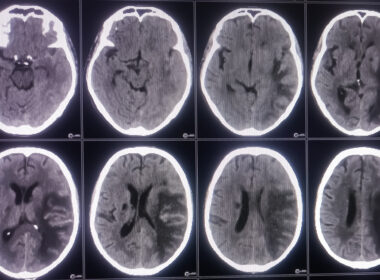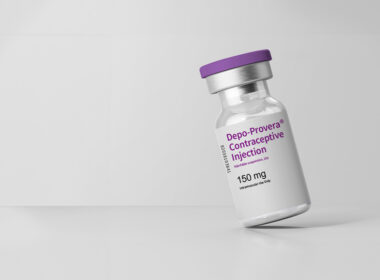When the physician diagnoses you with an illness, mental, or physical disability that doesn’t exist in your body, it can lead to grave harm. In the same manner, failure to diagnose your medical condition might worsen one’s medical condition. Recent research by John Hopkins Medicine estimates that over 250,000 deaths occur annually in the US due to medical errors alone. Medical errors rank as the third-leading cause of death in the US, after cancer and heart complications.
Fortunately, medical malpractice law exists to compel physicians to provide competent medical care, as well as compensate patients who suffer due to inaccurate assessments by physicians. If a doctor has misdiagnosed you in the past, you have the right to sue your doctor and deserve compensation.
But how do you prove medical malpractice for misdiagnosis or failure to diagnose cases? Here is a quick guide.
Prerequisites of Proving Medical Malpractice Claim for Failure to Diagnose

Patients must prove certain elements for their medical malpractice claim for failure to diagnose to hold water. These elements include:
- A valid doctor-patient relationship that bestows the physician a legal duty of care
- Misdiagnosis or failure to diagnose in breach of the existing legal duty of care
- The harm suffered is measurable
- The harm suffered by the patient is a result of failure to diagnose
Legal Duty of Care
Proving the legal duty of care is pretty straightforward. Typically, this relationship is established when a patient visits a doctor to getwith the intent of getting medical care. You don’t need to show a medical contract or a payment receipt to prove that the doctor-patient relationship existed. Medical ethics bound nurses and physicians to give reasonably competent medical care every time they interact with patients in the capacity of medical professionals.
Breach of Legal Duty of Care
After establishing that there was a valid doctor-patient relationship that bestows legal duty of care on the physician, the patient must prove that the duty of care was breached as a result of negligence or mistake. However, a mere diagnosis case doesn’t constitute indemnifiable negligence unless you can prove that the physician failed to provide competent medical care that other doctors would under similar cases.
You’ll need an expert witness to help you navigate this stage because it is the most critical. Your medical malpractice attorney will help you get the expert witness, usually a specialized doctor in the underlying medical condition that led to negligence. The doctor will then give a statement on what a competent doctor would have done under similar circumstances. This is known as differential diagnosis.
A differential diagnosis entails running tests on possible medical conditions as evident by the prevailing patient symptoms. The specialized doctor, who is the expert witness, will rule out possible outcomes until a definitive diagnosis is achieved to establish the standard of quality medical care. After that, the onus of proving that the physician in question doesn’t uphold this standard of quality medical care is on the patient
Cases that might fail to achieve the threshold of quality care include:
- Failure to acknowledge the urgency of the underlying patient medical conditions
- Failure to include a possible medical complication in the differential diagnosis list
- Inaccurate interpretation of medical tests to narrow down on likely possibilities
- Failure to give the right diagnostic medication
Harm or Damages

Besides proving negligence on the Physician’s end, the patient must also prove that failure to diagnose led to foreseeable harm or damages, such as injury or financial loss. For instance, a doctor might misdiagnose a patient with cancer. The patient will then go for chemotherapy sessions, which sometimes can be aggressive, depending on the doctor’s assessment. This is not only costly but also emotionally stressful.
In another case, a doctor may fail to diagnose cancer, leaving it to progress to an extent where treatment may not be a viable option for managing the condition. In that case, the patient might eventually die due to failure to diagnose the condition entirely. Other forms of harm that misdiagnosis or failure to diagnose can cause include anxiety, stress, or other medical conditions that can be triggered by unnecessary medication.
Generally, these forms of harm and damage can emanate from the following diagnostic mistakes:
- Delays in making an accurate diagnosis
- An inaccurate diagnosis that can lead to the treatment of a wrong illness
- The doctor misses an unrelated disease during differential diagnosis
- A clean bill of health is awarded to a patient who is actually sick
- Correct diagnosis but failure to acknowledge visible complications
Compensation
Proving a medical malpractice case as a result of failure to diagnose can lead to compensation. The compensation can be awarded directly to the patient or the existing family member in the event of the patient’s unfortunate death. Prevalent types of compensation in misdiagnosis medical malpractice cases include;
- Payment for incurred medical bills
- Indemnification for wrongful death
- Payment for emotional pain and suffering
- Payment for physical pain and suffering
The compensation usually comes from the physician and/or the hospital or a third-party insurance provider. It can be settled in court or outside court, depending on what the involved parties agree on. It’s worth noting that medical malpractice lawsuits hardly go to a court trial, unless the defendant offers a lowball compensation or disagrees to pay altogether. Also, the amount of compensation varies accordingly, depending on the extent of harm or damage and the prevailing regional medical malpractice damage caps.
Take Action and Lead a Normal Life after a Misdiagnosis
Patients usually trust doctors and other medical professionals to perform all the necessary tests (physical and blood) and diagnose their underlying health conditions accurately. The doctor’s legal duty of care also extends to monitoring patient symptoms after treatment to ensure that the medication works as intended. If this doesn’t happen, patients often face damages, some irreversible, such as death. Don’t suffer silently in such a situation. Filing a medical malpractice lawsuit can help you or your family recover from financial losses caused by failure to misdiagnose. Contact us today and schedule an appointment for free consultation and assessment of your case.












